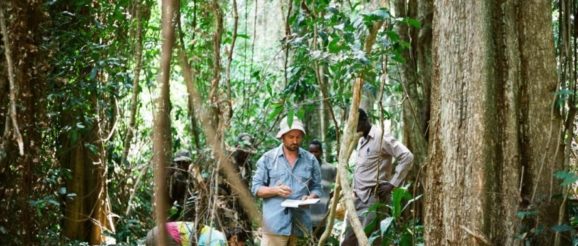60% of wild coffee species are now threatened with extinction | Inhabitat – Green Design, Innovation, Architecture, Green Building

When people think of threatened and endangered species, charismatic animals like tigers and giant pandas are usually top of mind. But climate change really hits home when it lands in your morning mug. Coffea arabica, the wild relative of the world’s favorite coffee, has hit the International Union for Conservation of Nature (IUCN) Red List of Threatened Species. According to a study done by scientists at England’s Royal Botanic Gardens, Kew, 60 percent of wild coffee species risk extinction. The culprits? Climate change, deforestation, pests and fungal pathogens.
Kew scientists undertook their research in African forests and on the island of Madagascar. Their computer models predict that by the end of the century, climate change could decrease the land now used for Ethiopian coffee production by 60 percent. Ethiopia is Africa’s largest coffee exporter — the annual export value tops $1 billion — and the birthplace of Arabica coffee. The wild Arabica coffee is a vital seed stock for coffee farmers.
This is bad news for coffee lovers, the multi-billion dollar coffee industry and the farmers who depend on the crop for their livelihood. “Among the coffee species threatened with extinction are those that have potential to be used to breed and develop the coffees of the future, including those resistant to disease and capable of withstanding worsening climatic condition,” said Aaron Davis, head of coffee research at Kew. “The use and development of wild coffee resources could be key to the long-term sustainability of the coffee sector.”
The Kew study is the first IUCN Red List assessment of the extinction risk to coffee worldwide. “A figure of 60 percent of all coffee species threatened with extinction is extremely high, especially when you compare this to a global estimate of 22 percent for plants,” said Eimear Nic Lughadha, senior research leader in Kew’s conservation department and lead scientist for Kew’s plant assessment unit. “Some of the coffee species assessed have not been seen in the wild for more than 100 years, and it is possible that some may already be extinct. We hope this new data will highlight species to be prioritized for the sustainability of the coffee production sector so that appropriate action can be taken to safeguard their future.”
Images via Emma Sage and Royal Botanical Gardens, Kew
